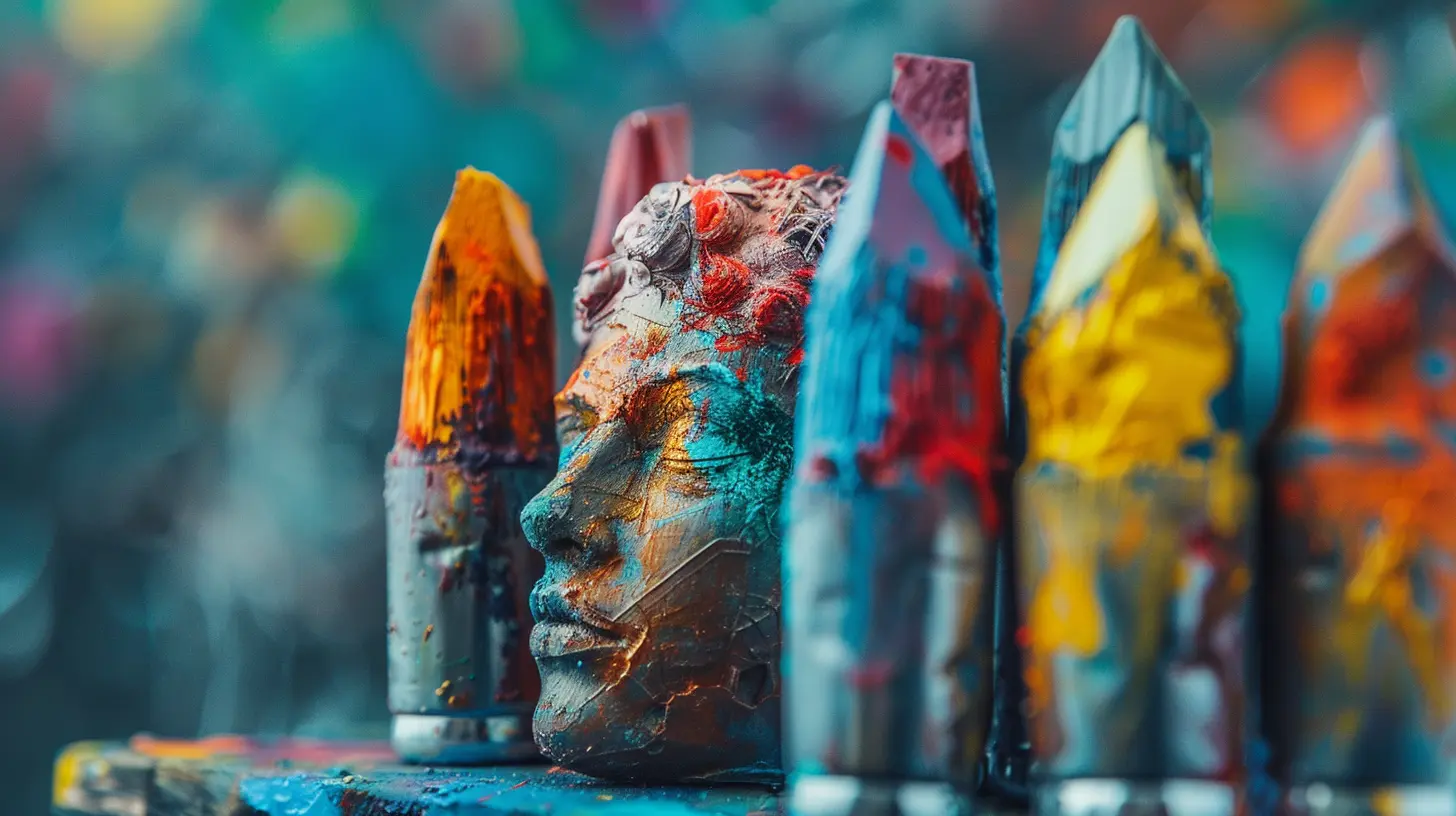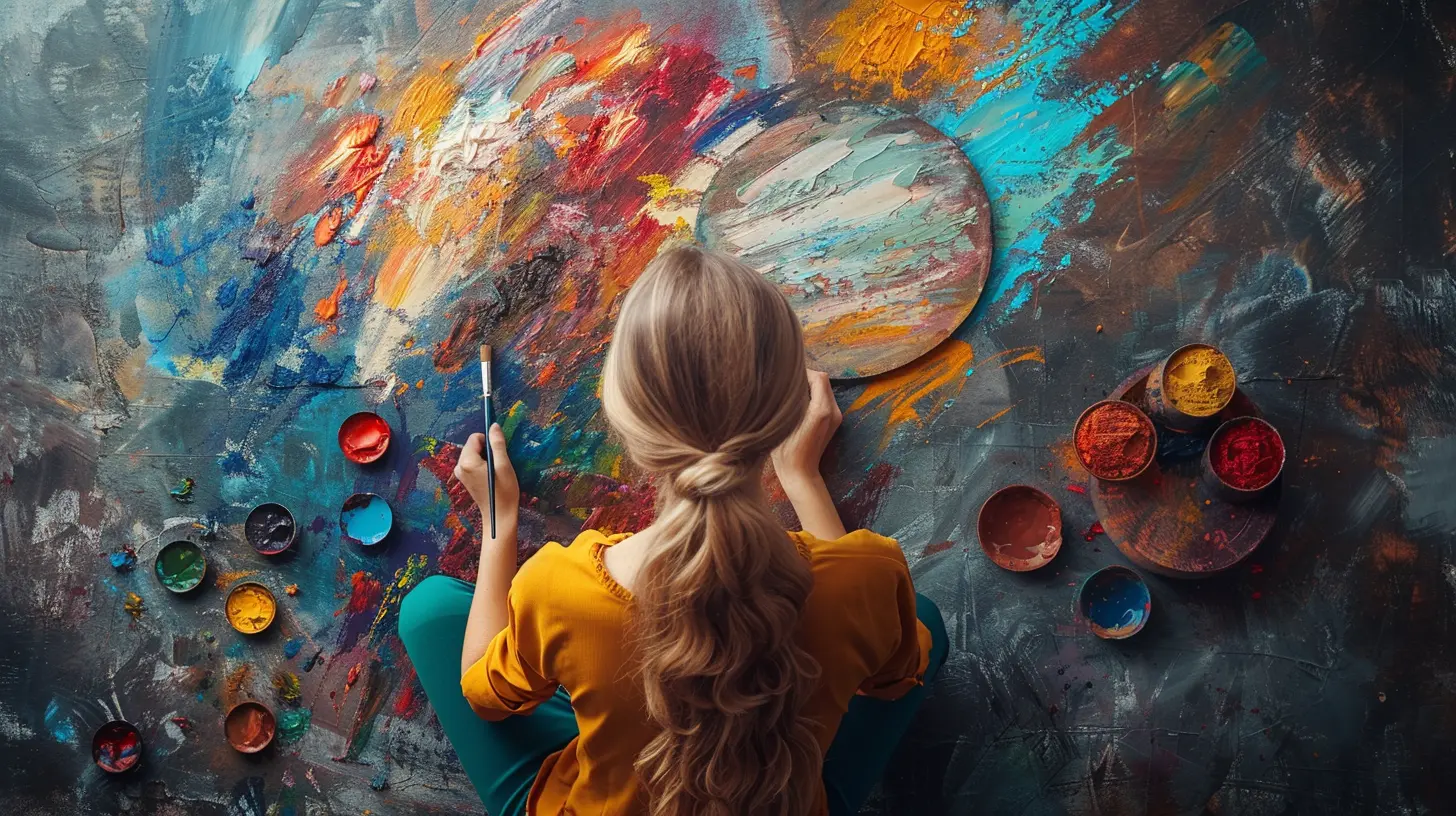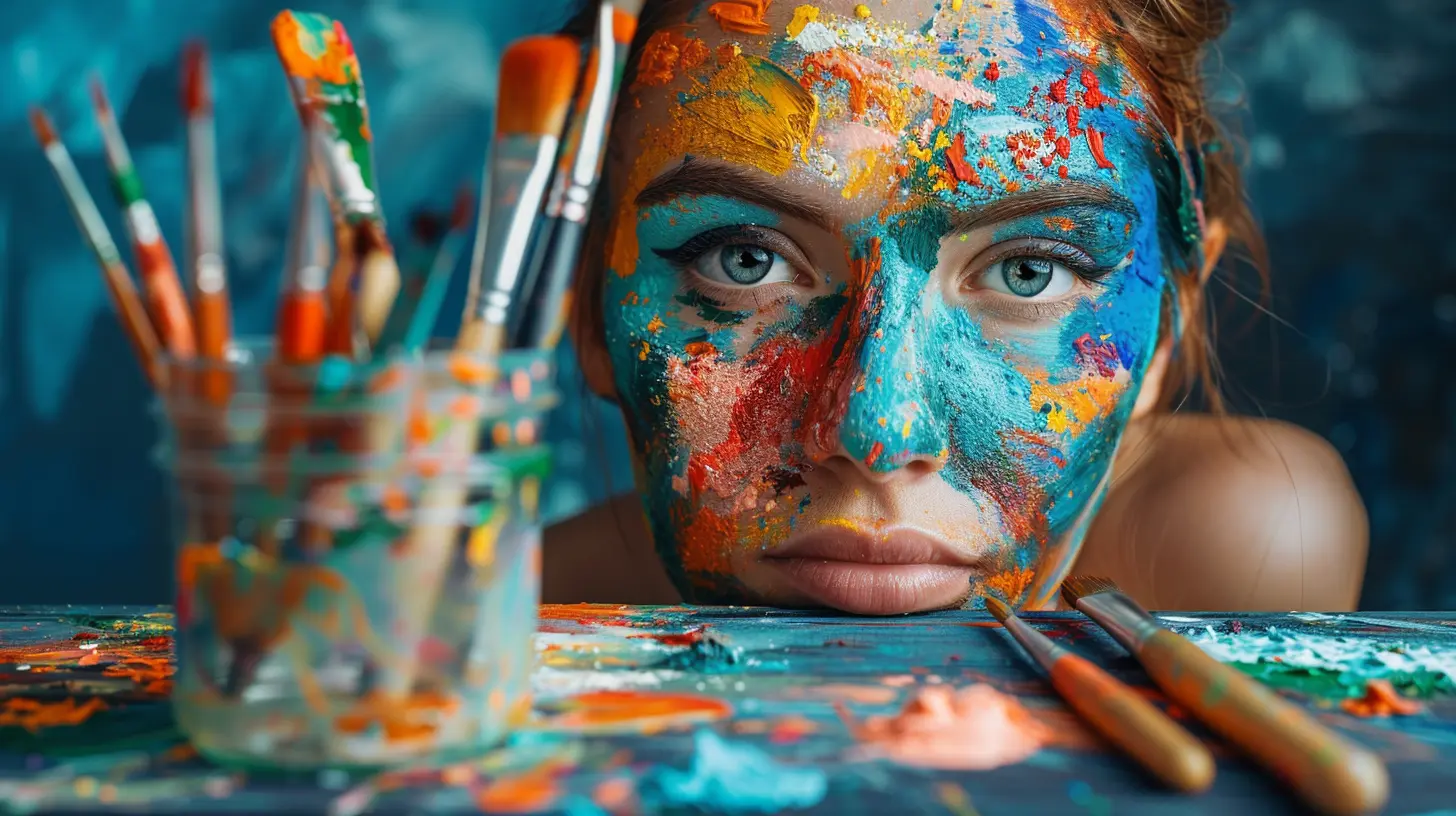The Role of Creative Hobbies in Enhancing Cognitive Performance
13 May 2025
We all have that one friend who’s always painting, knitting, or playing the guitar in their spare time. While it might seem like just a fun way to unwind, research suggests there’s much more to creative hobbies than meets the eye. Beyond being relaxing or fulfilling, engaging in creative pursuits may actually boost your brainpower and enhance cognitive performance. Intrigued? Stick around because we’re diving into the hows and whys of this fascinating topic.

What Are Creative Hobbies?
Before we get into the nitty-gritty, let’s first define what creative hobbies are. Creative hobbies are activities that allow you to express yourself in unique ways and flex your imaginative muscles. Think of things like painting, writing, playing an instrument, gardening, cooking, crafting, or even photography. These hobbies often require focus, problem-solving, and a spark of originality—traits that are closely tied to brain function.Now, you might be wondering: Can picking up a paintbrush or learning to strum a guitar really make me smarter? The short answer is yes, but there’s a lot more to it than that.
How Creative Hobbies Stimulate the Brain
Our brains are incredible—it’s like having the most sophisticated supercomputer right inside our heads. But just like a computer needs regular updates to stay efficient, our brains also need regular challenges. Creative hobbies provide the mental "exercise" our brains thrive on. Here’s how:1. Encouraging Neuroplasticity
Neuroplasticity is a fancy word for the brain’s ability to adapt, reorganize, and form new neural connections. When you engage in a creative hobby, you're pushing your brain to think in new ways. For example, learning to play jazz on the piano involves memorization, pattern recognition, and improvisation—all of which fire up different areas of the brain.The more you challenge your brain, the better it becomes at adapting to new situations. So, if you’ve always wanted to pick up embroidery or try your hand at poetry, now might be the perfect time to start!
2. Boosting Problem-Solving Skills
Ever tried to fix a mistake while painting or figure out why your soufflé collapsed? Creative hobbies often require you to think critically and come up with solutions on the fly. This constant problem-solving strengthens cognitive flexibility—a key skill that helps you adapt to challenges in other areas of life.In fact, studies have found that engaging in creative activities can improve your ability to solve even complex, real-world problems. Who knew doodling could make you a better decision-maker?
3. Improving Focus and Concentration
In today’s world of constant notifications and distractions, focusing can feel like a superpower. The good news? Creative hobbies help you hone this skill. Activities like knitting or painting require sustained attention and mindfulness, pulling you into a state of "flow" where time seems to fly by, and distractions fade away.This kind of deep focus doesn’t just stay within your hobby—it spills over into your work and daily life, making you more productive and efficient.
How Creative Hobbies Impact Memory
Memory isn’t just about recalling where you left your keys—it also involves retaining new knowledge, connecting ideas, and understanding patterns. Let’s talk about how creative hobbies strengthen these abilities.1. Enhancing Short-Term Memory
Creative hobbies that involve learning new skills—like playing an instrument or mastering a new recipe—engage your working memory. This helps improve your ability to juggle multiple pieces of information at once, which is crucial for everything from studying to managing your to-do list.2. Reinforcing Long-Term Memory
Ever notice how a smell, song, or visual cue can transport you back in time? Creative hobbies play a role in encoding long-term memories by engaging multiple senses. For example, sketching a portrait involves visual, tactile, and sometimes even emotional engagement, which can make memories associated with the activity more vivid.3. Slowing Cognitive Decline
Here’s a fun fact: Creative hobbies can actually help keep you sharp as you age. Research has shown that older adults who engage in activities like painting, crafting, or music are less likely to experience cognitive decline. It’s like giving your brain a natural workout to stay youthful and resilient.
Emotional Benefits of Creative Hobbies
Cognitive performance isn’t just about logic and memory—it’s also closely tied to how we feel. When you’re stressed or anxious, your brain doesn’t function at its best. Creative hobbies can help with that, too.1. Stress Reduction
There’s something deeply soothing about losing yourself in a creative activity. Whether it’s the rhythmic motion of knitting or the joy of mixing colors on a canvas, these hobbies act as a form of meditation. This lowers stress levels and helps your brain operate more effectively.2. Boosting Self-Esteem
Completing a creative project—no matter how small—gives you a sense of accomplishment. That boost in confidence can motivate you to tackle challenges in other areas of your life, from work projects to personal goals.3. Fostering Social Connections
Many creative hobbies, like joining a writing group or participating in community theater, have a social component. These interactions stimulate your brain, improve communication skills, and make you feel connected—all of which contribute to overall cognitive and emotional well-being.How to Get Started with a Creative Hobby
By now, you’re probably itching to try something creative. But where should you start? Picking a hobby can feel overwhelming, but it doesn’t have to be. Here are a few tips to help you dive in:1. Follow Your Curiosity: Is there something you’ve always wanted to try? Maybe you were fascinated by photography or dreamed of learning to play the violin. Start there.
2. Start Small: You don’t need to dive straight into a complex project. Try beginner-friendly activities like adult coloring books, simple recipes, or easy craft kits.
3. Make It Regular: Consistency is key. Dedicate a specific time each week to your hobby and treat it as non-negotiable "you time."
4. Stay Playful: Remember, this is all about having fun and exploring your creative side. Don’t stress about being perfect—just enjoy the process.
Conclusion
Creative hobbies aren’t just a way to pass the time—they’re a powerful tool for enhancing cognitive performance, improving memory, and keeping your brain sharp. Whether you’re painting your next masterpiece, strumming a few chords on a guitar, or even trying your hand at gardening, you’re doing more than just creating—you’re giving your brain the ultimate workout.So, why not give it a shot? Pick up that camera, grab those knitting needles, or dust off that old sketchbook. Your brain (and maybe even your soul) will thank you.
all images in this post were generated using AI tools
Category:
Mental ClarityAuthor:

Laurie Barlow
Discussion
rate this article
3 comments
Andrew Beck
Creative hobbies significantly boost cognitive functioning and mental well-being.
May 16, 2025 at 2:54 AM

Laurie Barlow
Absolutely! Engaging in creative hobbies not only stimulates the brain but also enhances mental health, fostering both cognitive function and emotional well-being.
Maddox McAllister
Thank you for this insightful article! It’s fascinating how creative hobbies can significantly enhance cognitive performance. Engaging in artistic activities not only nurtures the mind but also promotes emotional well-being. I look forward to exploring new hobbies and their potential benefits on cognitive health!
May 15, 2025 at 3:26 PM

Laurie Barlow
Thank you for your thoughtful comment! I'm glad you found the article insightful and I hope you discover many rewarding benefits through your new hobbies!
Meagan Morrow
Creative hobbies not only stimulate the mind but also nurture emotional well-being, forging a holistic approach to health.
May 14, 2025 at 2:31 AM

Laurie Barlow
Thank you for your insightful comment! I completely agree—creative hobbies indeed promote mental stimulation and emotional health, contributing to overall well-being.



